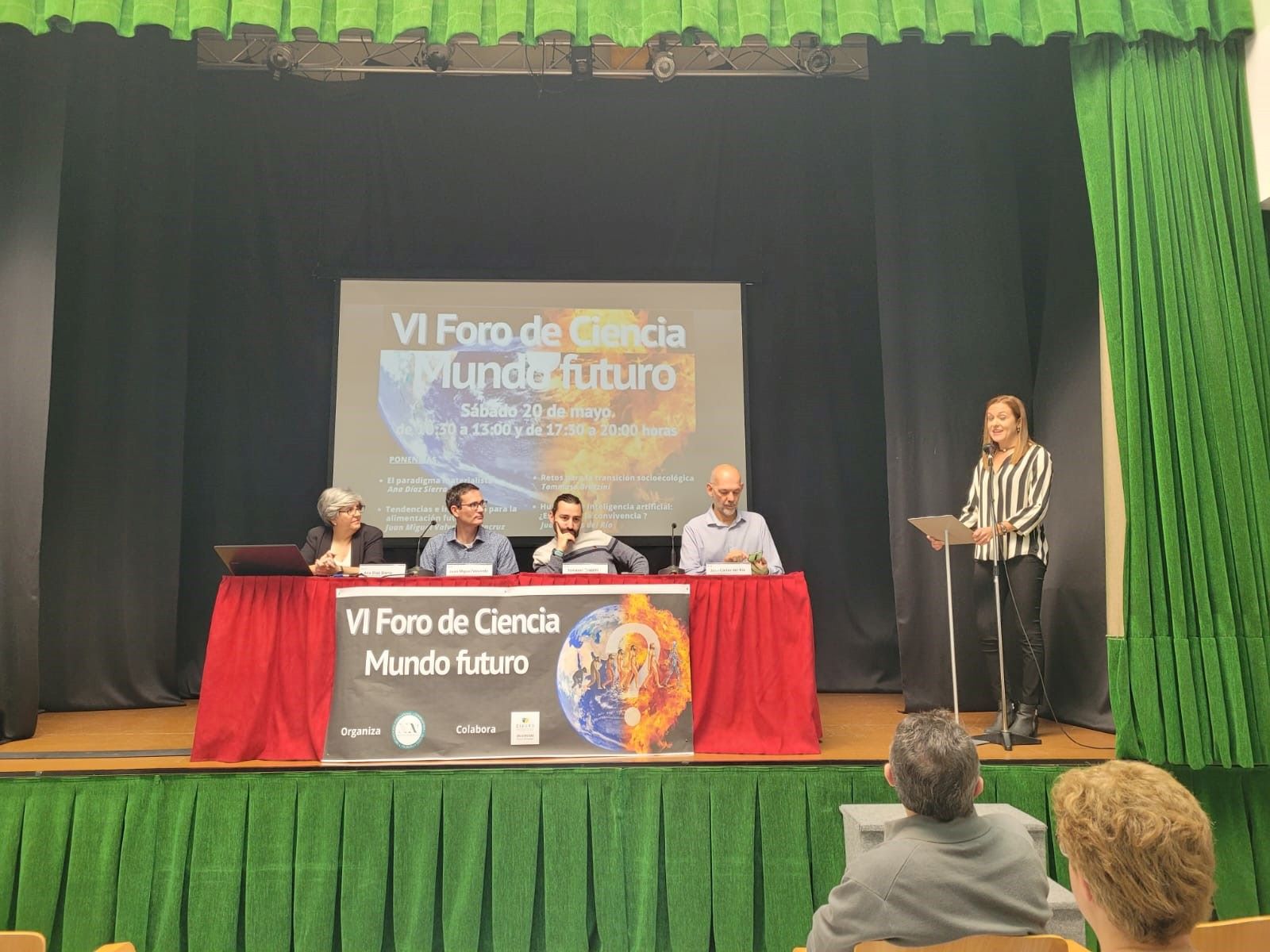6th Science Forum: Future World (Alicante, Spain)
New Acropolis held the 6th Science Forum “Future World” with the participation of speakers including Ana Díaz Sierra (geologist), with a lecture entitled “The materialist paradigm”, and Juan Miguel Valverde Veracruz (lecturer at Miguel Hernández University, specializing in Agri-food Technology and Agri-environmental Research and Innovation), with a talk entitled “Trends and innovation for future food”.
Ana Díaz Sierra’s presentation focused on the consequences of the prevailing materialist paradigm in the “developed world”, which enjoys material benefits and privileges that are not reflected in the emotional and psychological well-being of its inhabitants.
In his presentation, Prof. Valverde Veracruz explained the causes that threaten world food security in the more or less near future, such as population growth, the shortage of finite natural resources, and stressed the urgent need to face the challenge of generating new ways of producing proteins in a sustainable way.
These two speakers were followed in the afternoon by Dr. Tommaso Brazzini, a Physicist from the University of Florence, who spoke on “Challenges for the socio-ecological transition”. Dr. Brazzini explained that the lack of sustainability, resilience and short-termism in resource management policies have so far characterized the way our societies have acted and stated that it is imperative to completely change our current paradigm and propose changes to ensure human survival.
The day was brought to a close by Juan Carlos del Río Álvarez (a graduate in mathematics specialising in astronomy from the Complutense University of Madrid, and an expert in Internet and data management) with his lecture entitled “Humans and artificial intelligence: Is coexistence possible?”
He began by reviewing the long history of the relationship between humans and machines and then analysed the current state of development of artificial intelligence and its possible evolution. Speaking as a philosopher, Juan Carlos del Río Alvarez then reflected on the ethical framework that should be introduced into the programming and use of artificial intelligence so that it benefits humanity and is used in a responsible and just way, and does not contribute to perpetuating or even increasing the social inequalities that affect us, or lead to the creation of new problems.

